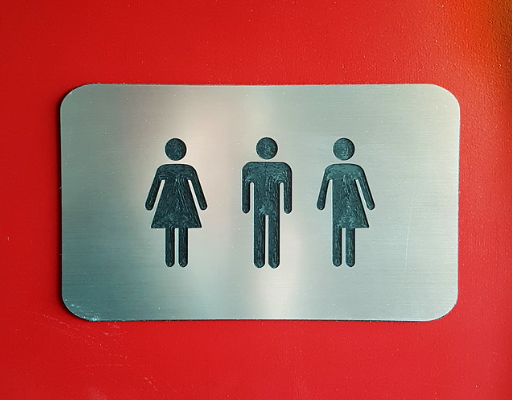MONTGOMERY — The Alabama House Health Committee on Tuesday advanced the What is a Woman Act after an interesting public hearing, sending it to the House floor for a full vote, which is expected later this week.
Lawmakers gathered in the small committee room on the fourth floor of the Alabama State House, where advocates expressed both support and opposition to the bill that would codify definitions of male, female, man, woman, and other sex-based terms into Alabama law.
The Health Committee took up the Senate version of the bill, Senate Bill 79, sponsored by State Sen. April Weaver (R-Brierfield), who presented the bill before the committee.
"This bill is based on fundamental truths that are as old as the book of Genesis and as reliable as the sun in the sky: men are born men; women are born women," Weaver said. "This is the simplest and easiest to understand bill that you will consider during this entire session."
The bill's House sponsor, State Rep. Susan DuBose (R-Hoover), took over for Weaver as a part of the "tag team" pushing the bill when the senator had to shuttle off to another meeting.
"I wish I didn't have to be here today," DuBose said. "I wish we didn't need to define what a man is or a woman is, but, you know, we do. When you have a Supreme Court justice who could not define what a woman is, despite being one herself, looks like we're going to have to codify this into Alabama law."
The public hearing before the committee vote was evenly made up of those supporting and opposing the bill.
First up was Bishop Jim Lowe, the senior pastor of The Guiding Light Church in Birmingham, who based his support for the bill on the creation of man as described in Holy Scripture.
"Since creation, it has been universally accepted that God, the supreme authority in the universe, created human beings as male and female, designing them with complimentary bodies and an unchangeable genetic identity to fulfill His command to 'be fruitful and multiply,'" Lowe said.
He continued, "This fundamental biological reality will remain unchanged regardless of a person's identification or lifestyle choices."
Next to the mic was a gentleman in a skirt who neglected to introduce himself to the committee. The skirt-dawning gentleman began with a monologue about his grandmother and her experience being raised by persons who were "slaves in the 1860s."
"This is the Alabama state government trying to tell you what a woman is," he said. "Not too long ago, the Alabama State government couldn't tell you what a person is. SB79 creates a narrow definition of men and women. Passing SB79 is beyond dangerous. It's reckless legislation. When you create a narrow definition of who qualifies for rights, you create space to harm everyone who doesn't fit that definition, especially if that definition is based on incorrect assumptions that ignore modern medical science. This bill erases trans people, erases intersex people and erases the experience of everyday Alabamians who know what a woman is and see one when they look in the mirror every day."
Another person opposed to the bill, this time a bearded woman in a suit, whose name was unintelligible, took a sardonic attitude with lawmakers, discussing her "heavy periods" while insisting that her assumingly masculine appearance would be unsettling in a women's bathroom, which she would be compelled to use under the bill's provisions.
"Do you want to walk into the women's bathroom and see me?" she asked. "Do you want your daughters to do that? If this is how you want to define things, if this is how you want society to look like, I look forward to using the women's restroom in the statehouse going forward."
Democratic lawmakers questioned DuBose about the specifics of the bill, especially around the law's treatment of intersex people, those with genetic conditions impacting chromosomes and other physiological sex-related traits.
State Rep. Neil Rafferty (D-Birmingham) quibbled with the language of SB79 and why its language differed from related executive orders from President Donald Trump. He also asked about the previous speaker's concern with presenting in an assumingly masculine way and being forced to use facilities that align with their biological sex.
"This bill is specifically about single-sex spaces and that kind of thing. As one of the gentlemen said, assigned female at birth but is now a bearded man. So, with that person going into the bathroom, do you think that's going to stir controversy or anything along those lines? What would then prevent a normal man – a man that was assigned male at birth– to then just say, 'I'm a trans woman' and exploit that same label? Or, 'I'm a trans man' and then go into the women's bathroom. What's to prevent that from happening?" Rafferty asked.
"This bill doesn't create any bathroom police," DuBose responded. "This is simply defining terms: male, female, man, woman; it's a definitions bill."
Rafferty then introduced an amendment to ensure that public, single-sex spaces would be free from any monitoring or "compulsory genital inspections." The amendment didn't receive a vote because no one would second the motion to present it.
The bill passed the Health Committee, with Rafferty being the only audible "nay" vote.
To connect with the author of this story or to comment, email craig.monger@1819news.com.
Don't miss out! Subscribe to our newsletter and get our top stories every weekday morning.










